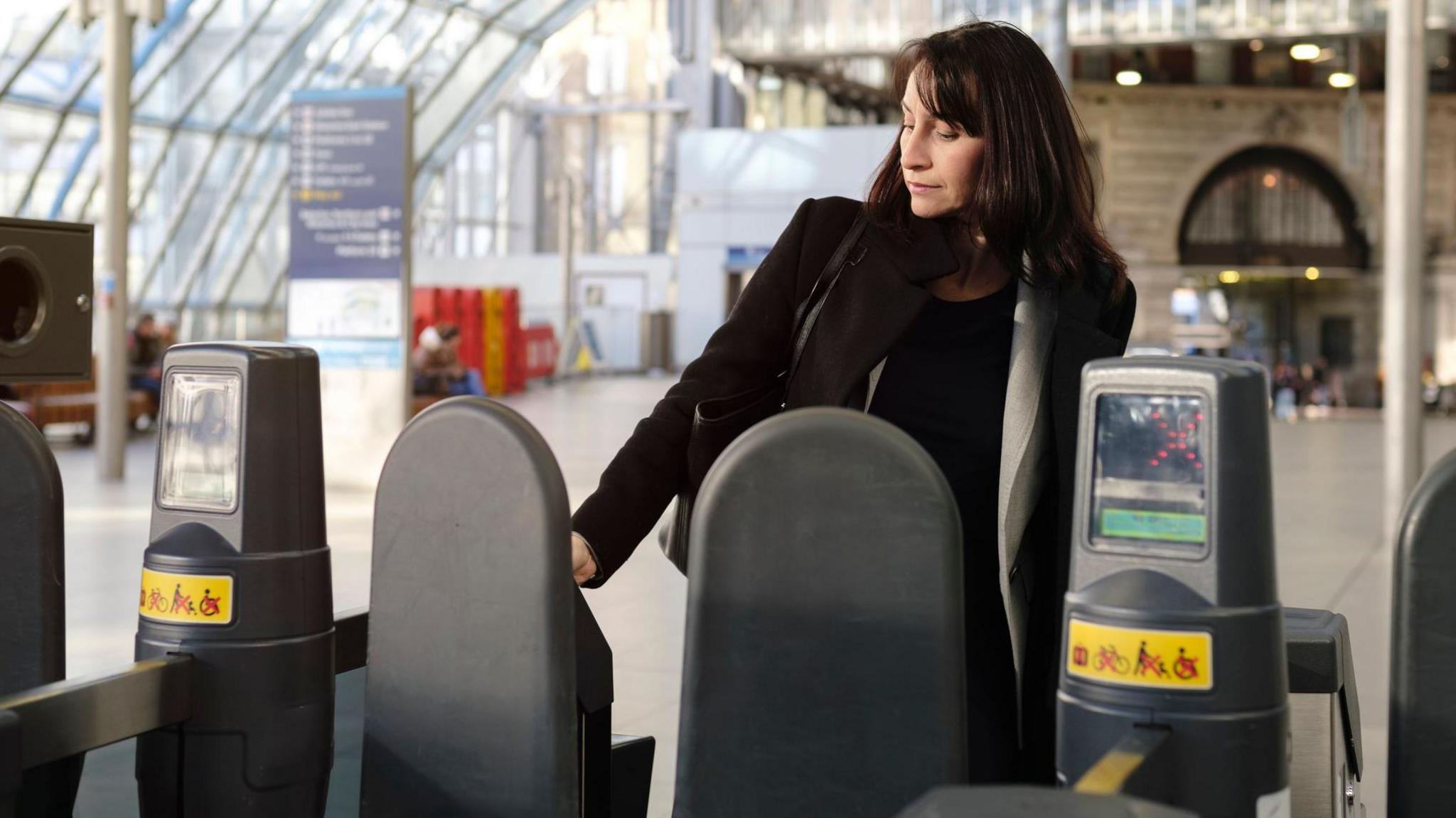How nationalising these rail services affects you
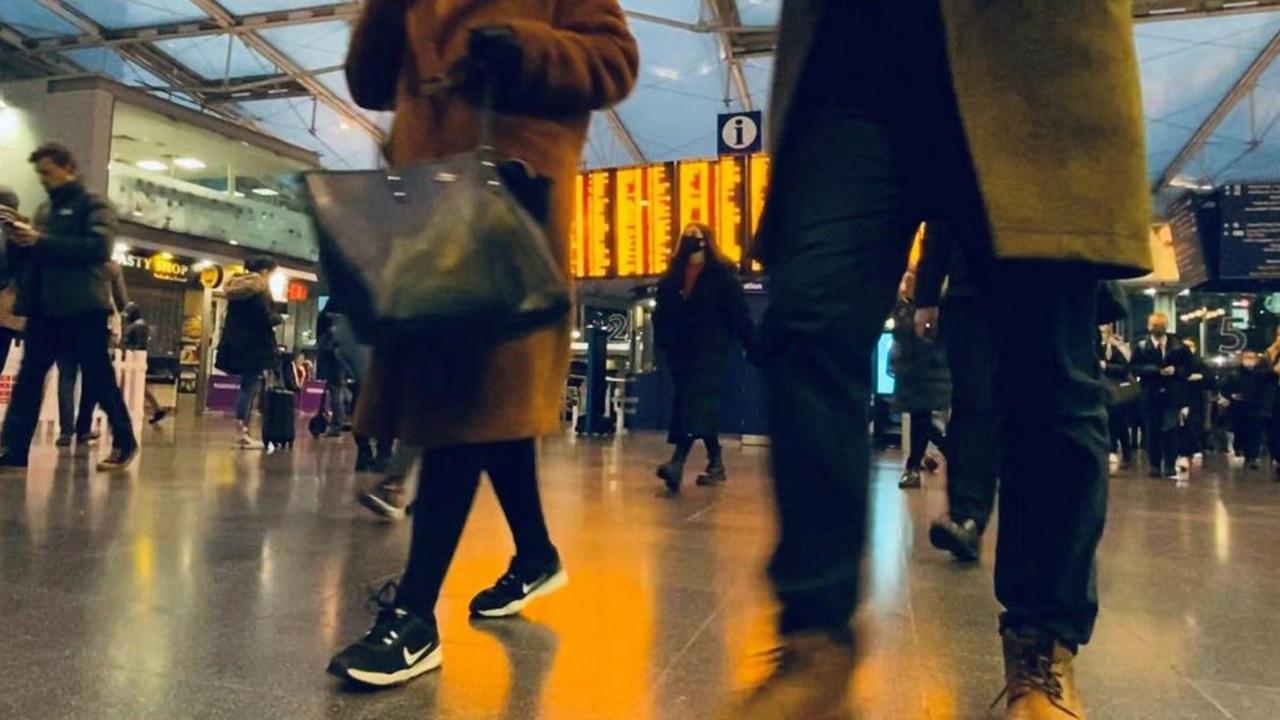
West Midlands Railway services are due to be taken into public ownership in February
- Published
Rail passengers in the West Midlands were told this week of a major change in the coming months to services in the region.
In February, those run by West Midlands Trains (WMT) will transfer to public ownership.
They will become part of Great British Railways (GBR), set up by the government to oversee the rail system in the country, when the operator's current contract ends.
What will change?
In the immediate future, almost nothing will - except possibly the paintwork on some trains.
"There won't be any change at all straight away," according to Sim Harris, managing editor of Rail News.
He added there might be some visible changes to the livery of trains but added it was the "first step" in a longer process of reform.
It was not even certain the name West Midlands Railway would survive, he said.
When will the changes take place?
Under the plans, the services operated by WMT will go into public ownership on 1 February, the Department for Transport (DfT) confirmed.
They will then become part of GBR, as part of the government's plans to nationalise all services in Britain to bring savings of up to £150m while also reducing delays and cancellations.
WMT, which runs both the West Midlands Railway and London Northwestern Railway brands, said it was committed to "ensuring a smooth transition" to public ownership.
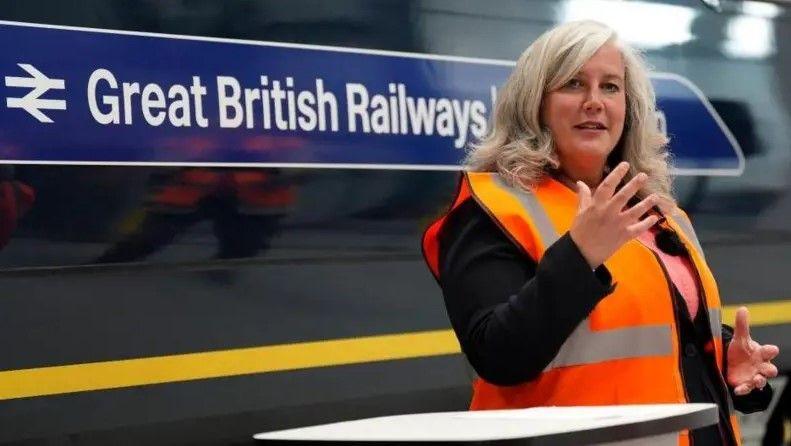
Transport Secretary Heidi Alexander said the cost of tickets was important to passengers but they were "willing to pay for a good service"
Will rail fares get cheaper?
No. With inflation currently at 2.3%, travelling by train will cost more in real terms.
When the government laid out plans for renationalising the railways in July 2024, it did not guarantee lower fares, but promised a "best fare guarantee", to make sure people are always paying the lowest fare for their journey.
It has also promised its reforms would make buying cheaper tickets simpler.
Transport Secretary Heidi Alexander said she recognised that "affordability is really important to people" but that people were "willing to pay for a good service".
She told the BBC that the day-to-day running of trains was already heavily subsidised by the taxpayer.
Her focus would instead be on improving services and infrastructure, she added.
What about timetables?
Bosses at WMT have said the change would not affect its train services, timetables or stations and that all "ticket validities and conditions of carriage" were unaffected.
Their managing director, Ian McConnell said he was proud of what their franchise had achieved but they were now working towards the transfer.
"As we transition to a publicly owned railway, our focus remains on delivering an outstanding service for our passengers," he added.
Will services improve?
Not in the short term.
During the Covid-19 pandemic, when passenger numbers plummeted by 94% during the lockdowns, the government - in effect - took control of much of the railways.
Several train companies in England moved on to contracts where they got a fixed fee to run services and the taxpayer carried the financial risk.
This also gave ministers and civil servants greater control over the day-to-day running of the railway - more so than they had in the days of British Rail.
The DfT said renationalisation would improve reliability, boost economic growth and bring savings.
But some have criticised the plans, arguing that public ownership will not make much difference unless it comes with more investment in the railways.
Mr Harris said successive British governments did not prioritise their railways as much as they did in places like Japan and Switzerland.
"The railway here has always been on the back foot," he added.
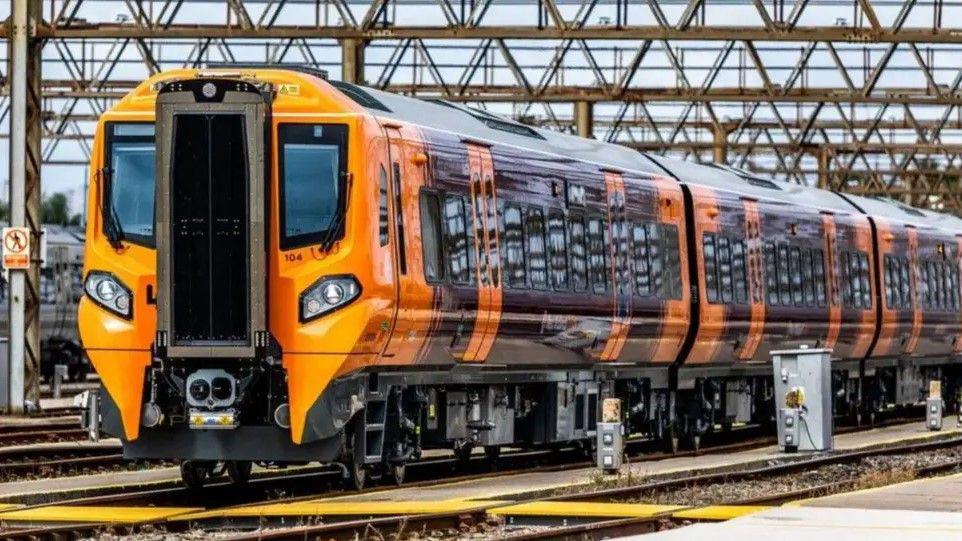
West Midlands Trains bosses moved to reassure passengers that the change would not affect its train services, timetables or stations in the near future
Why is it happening now?
The government passed legislation in November allowing them to take rail firms into public ownership.
With the publicly-owned body GBR launched, it will take over the contracts currently held by private firms in England as they expire in the future, including WMT.
Ministers previously said they hoped nationalisation of all services in Britain would bring savings and cut delays and cancellations.
However, shadow rail minister Jerome Mayhew said he feared nationalisation could end up costing taxpayers more money in increased costs for leasing rolling stock.
What is nationalisation?
Nationalisation is when something - such as a service, company or an entire industry - is brought under the control and ownership of the state or government.
From just after World War Two until the 1990s, the UK rail system was fully nationalised - with the government owning the rail networks and all of the trains.
Under the current system, rail infrastructure is managed by the publicly-owned organisation Network Rail - while passenger train services are run by individual operators which are both privately and publicly-owned.
The government decided they would take over control of these services as operators' franchise periods come to an end.
The situation is different in Scotland and Wales, where passenger services are run by the devolved governments. In Northern Ireland, the system is fully nationalised.
Related topics
- Published29 July
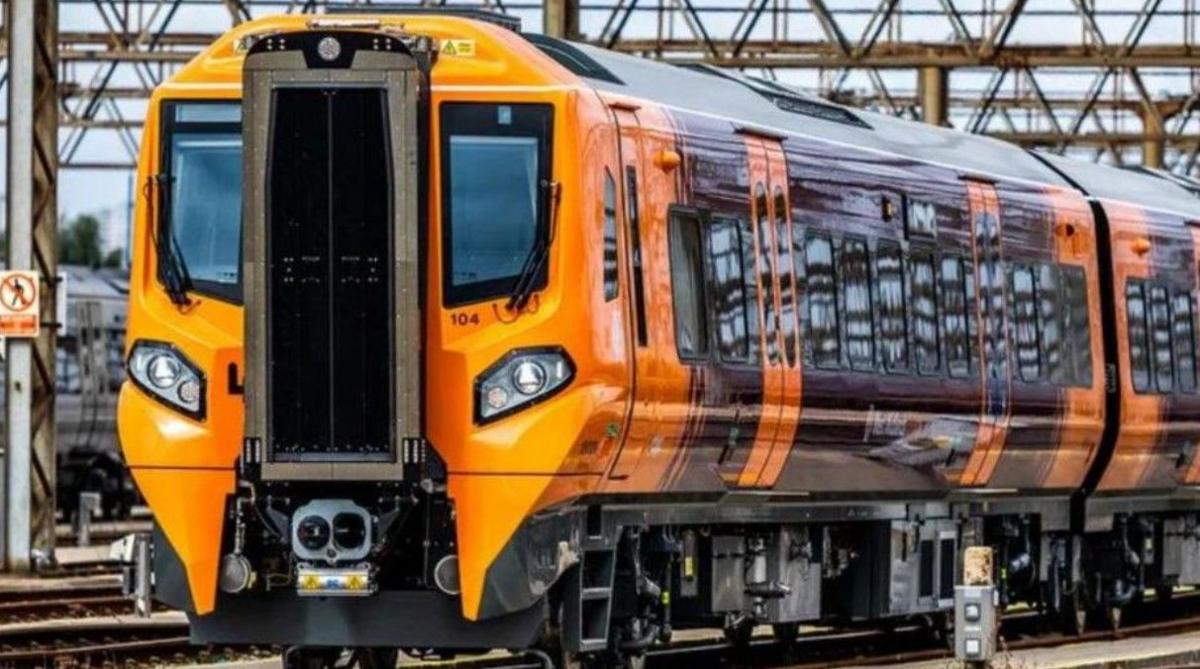
- Published25 May
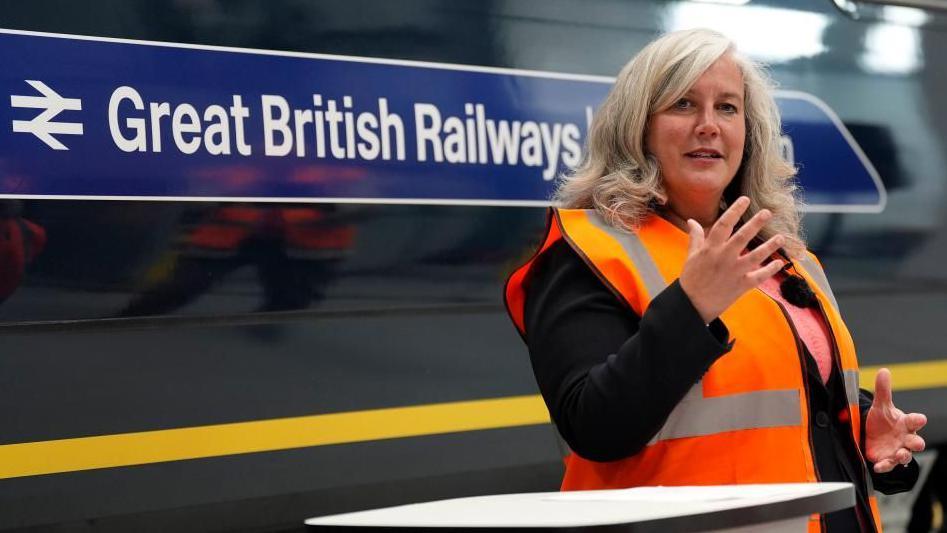
- Published4 December 2024
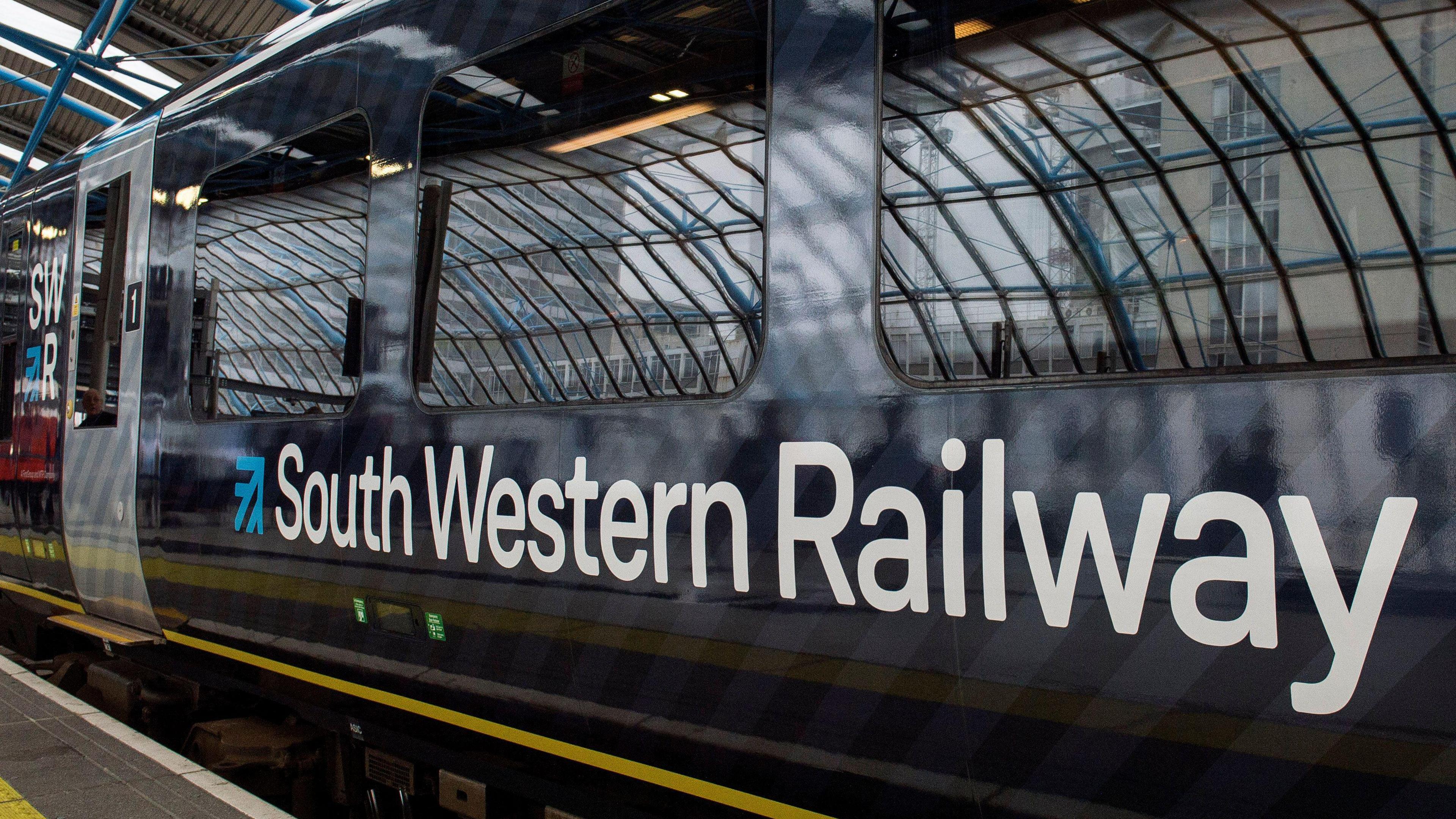
- Published4 December 2024
